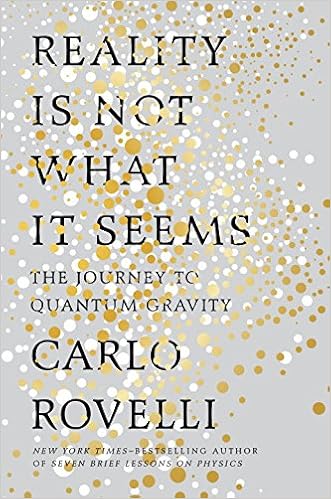 From physicist Carlo Rovelli, author of Reality Is Not What It Seems: The Journey to Quantum Gravity, interviewed by Cody Delistraty, at Nautilus:
From physicist Carlo Rovelli, author of Reality Is Not What It Seems: The Journey to Quantum Gravity, interviewed by Cody Delistraty, at Nautilus:
You’ve said before that space and time don’t “really exist.” Why say that?
We study in school that fixed space is like a table over which things happen and time just passes. We have this quantitative view from Newton. With Einstein we understand that this container is in fact an active thing in the universe. Space and time, as Einstein said, is like a big jellyfish in which we’re immersed. This theory has stood up. So we know that all this dynamical stuff is quantum. We need a quantum description of this jellyfish, but a quantum description means that we cannot think of it anymore as something fixed and stable.
We have to think of it like a quantum electron: something that can open up and spread in a cloud of probability—like the probability cloud in quantum mechanics. A probability cloud in space is plural and time is plural, so we can no longer think of the universe as contained in a single space in a single time. We need something richer. It’s not that our sense of space and time is wrong; it’s just that it’s approximate, and nature is far richer than that. That’s why.
The Nobel Prize-winning physicist Steven Weinberg recently wrote in the New York Review of Books, “There’s no argument about how to use quantum mechanics, only how to describe what it means. So perhaps the problem is merely one of words.” Is he right?
I don’t like in his vision that we don’t understand quantum mechanics. No—we use it to explain the world. When new ideas come out, they’re very counterintuitive. When we discovered the Earth was round, the idea that people were upside-down on the sides of the Earth was not the most sensible idea comparatively. Now it is. I think quantum mechanics requires more discussion, but we will understand it nicely, I think. More.
One problem might be with what we mean by “understand” something. That is, are we prepared to understand it as it reveals itself or only insofar as we can fit it into a framework? Are we prepared to live with warranted uncertainty?
See also: Physics flowering — yet in one of its “deepest funks” ?
and
Unvarnished: Why scientism helps sell books
Follow UD News at Twitter!